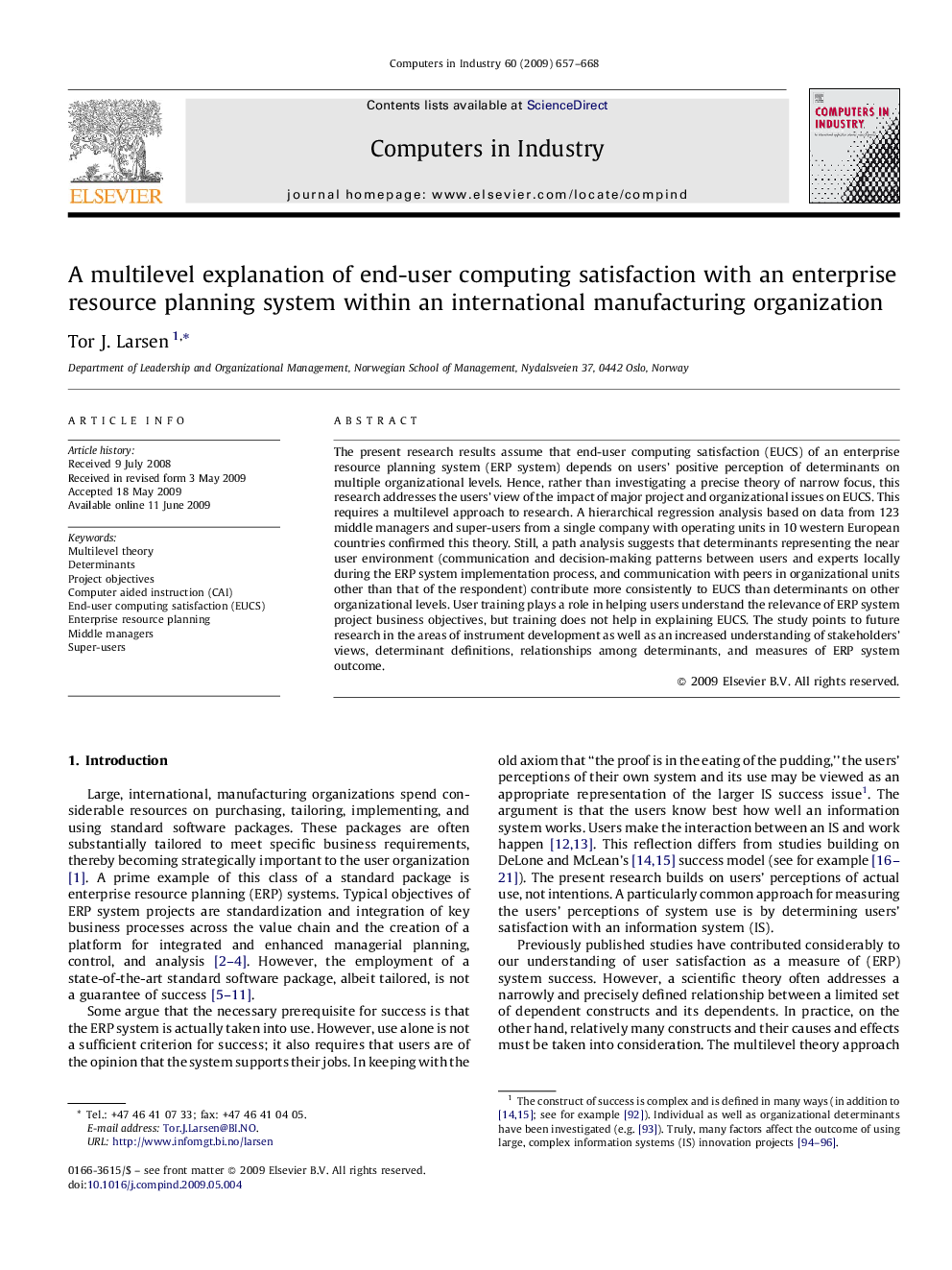| Article ID | Journal | Published Year | Pages | File Type |
|---|---|---|---|---|
| 509464 | Computers in Industry | 2009 | 12 Pages |
The present research results assume that end-user computing satisfaction (EUCS) of an enterprise resource planning system (ERP system) depends on users’ positive perception of determinants on multiple organizational levels. Hence, rather than investigating a precise theory of narrow focus, this research addresses the users’ view of the impact of major project and organizational issues on EUCS. This requires a multilevel approach to research. A hierarchical regression analysis based on data from 123 middle managers and super-users from a single company with operating units in 10 western European countries confirmed this theory. Still, a path analysis suggests that determinants representing the near user environment (communication and decision-making patterns between users and experts locally during the ERP system implementation process, and communication with peers in organizational units other than that of the respondent) contribute more consistently to EUCS than determinants on other organizational levels. User training plays a role in helping users understand the relevance of ERP system project business objectives, but training does not help in explaining EUCS. The study points to future research in the areas of instrument development as well as an increased understanding of stakeholders’ views, determinant definitions, relationships among determinants, and measures of ERP system outcome.
